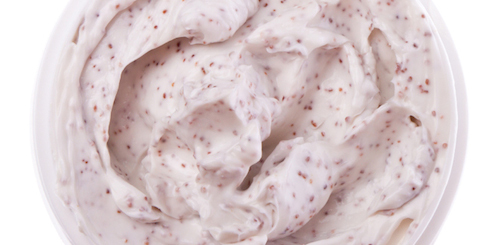When it comes to getting the perfect summer glow, it's no secret that an exfoliator is a key player in the process. After all the outer layer of your skin, the epidermis renews itself roughly every four weeks. A little bit of scrubbing will slough away dead those dead skin cells for a silky smooth skin tone and a radiant complexion.
But, have you ever looked closely into your bottle and thought about what those tiny little beads of added texture actually are?
If you haven't thought about it yet, better listen closely before you grab your next bottle. Those microbeads, or polyethylene scrubbers if you want to get technical, can be harmful to the environment!
When we wash them down our drains, they aren't caught in municipal water filters due to their small size. They eventually slip into lakes, rivers, and oceans. Since they aren't biodegradable, they're harmful to the fish that end up swallowing them.
Illinois was the first state to sign legislation banning microbeads in personal care products, in an effort to product the Great Lakes from further plastic pollution. Even though legislations like Senate Bill 2727 in Illinois and the "Microbead-free waters act" in New York is being passed to phase those harmful ingredients from our cosmetic products, it will probably be a few years before they disappear completely from store shelves.
That's why it's important that you understand the negative ecological/environmental impact of the products we use and what we can do personally to make changes immediately. If you want to make the switch to natural alternatives, that won't harm the environment, here are a few exfoliating ingredients to look for: ground nut and fruit seeds (i.e., walnut shells, apricot seeds, almonds), baking soda, cane sugar, sea salt and oatmeal.
Already have a body wash in your shower that doesn't have exfoliating ingredients? Grab a natural loofah and pair it with the formulation you already fancy to elevate your shower experience and get the job done in style. And whatever you do, please don't forget to replace your loofah every eight to 12 weeks.
Follow Indie Lee on Twitter.

